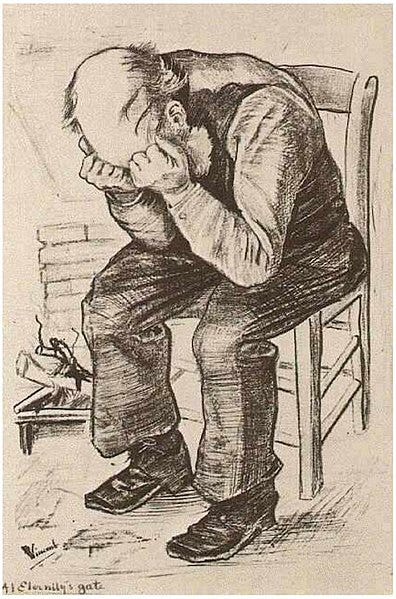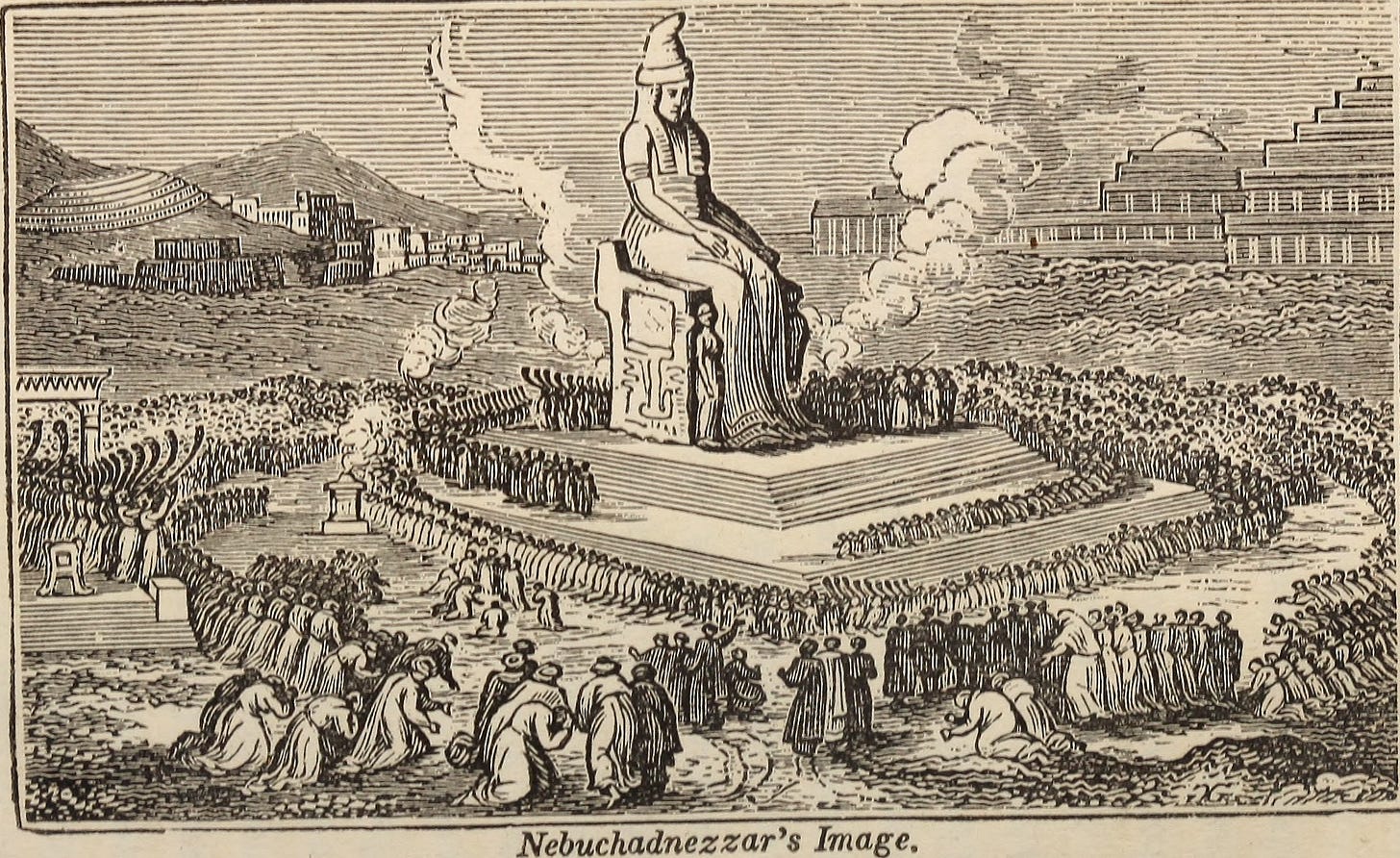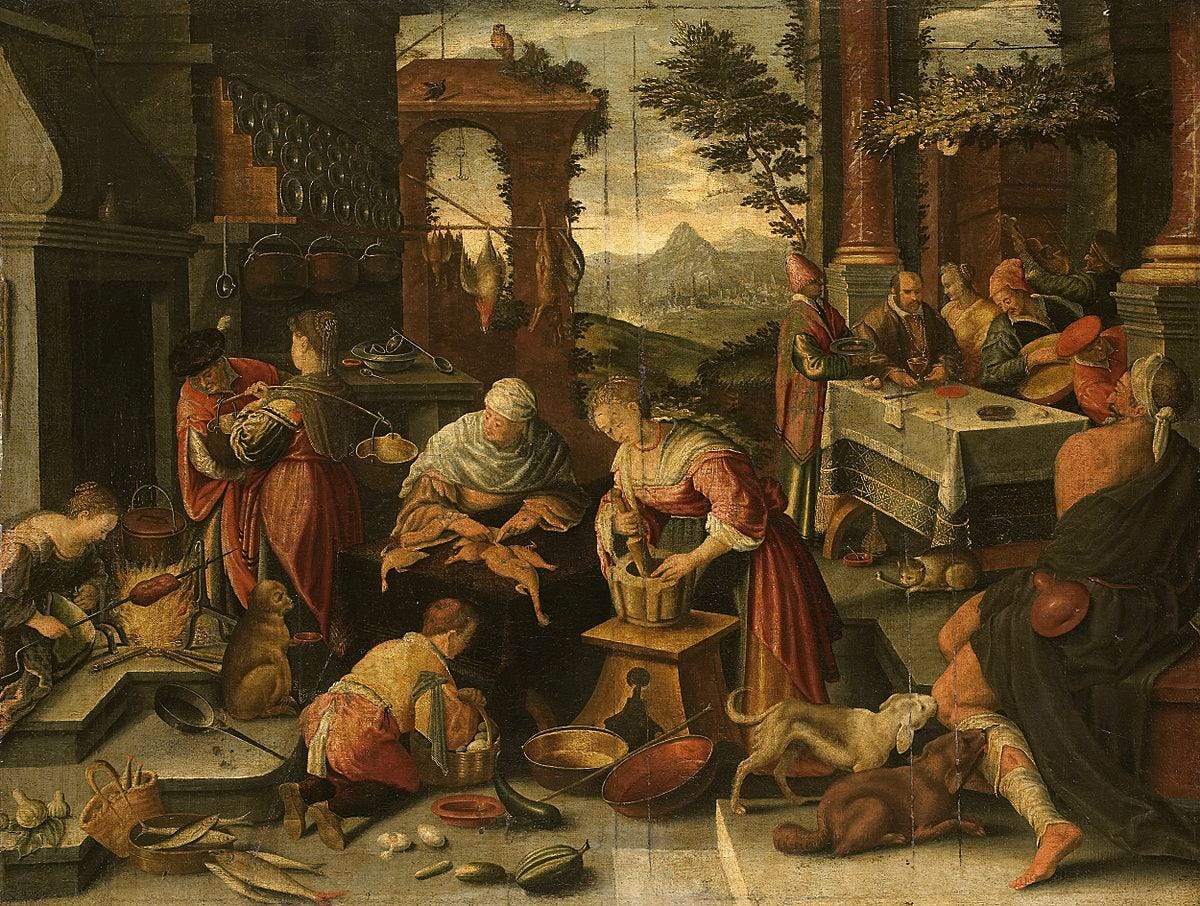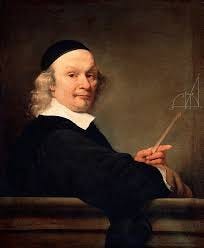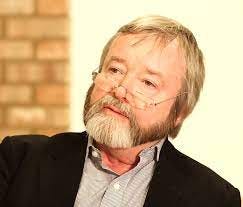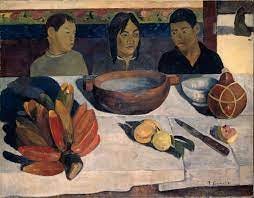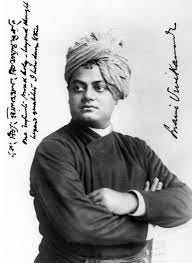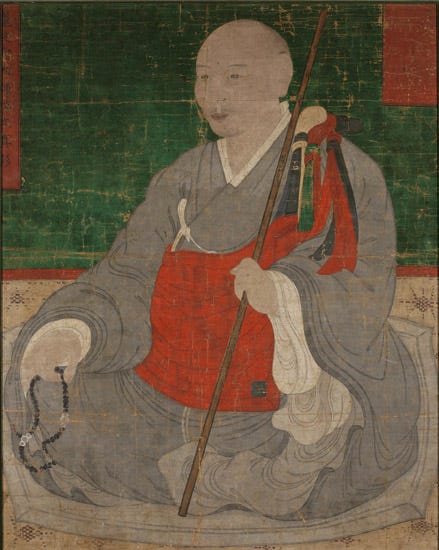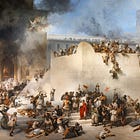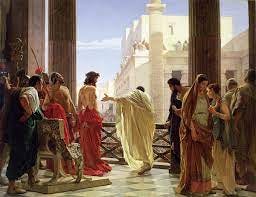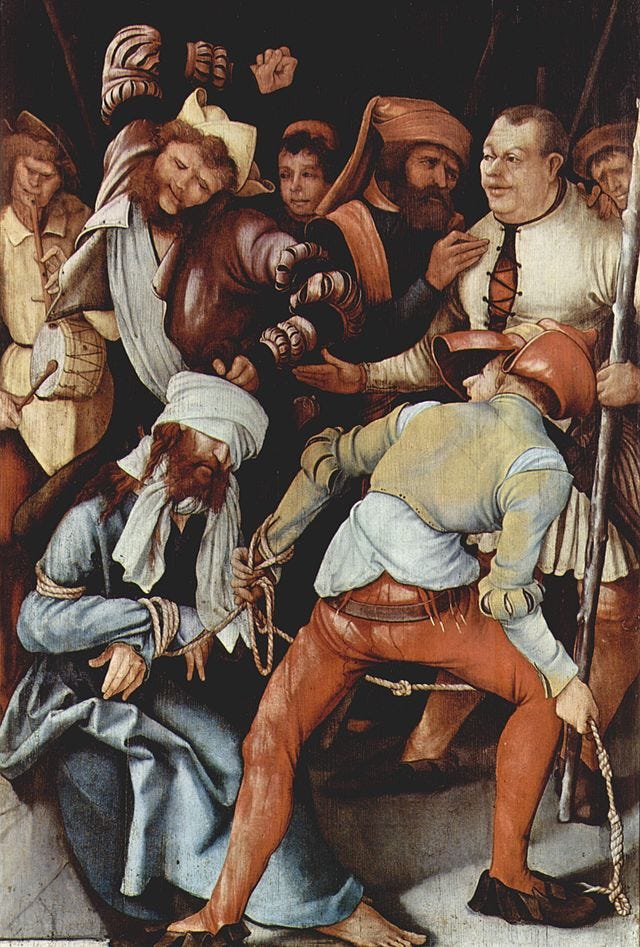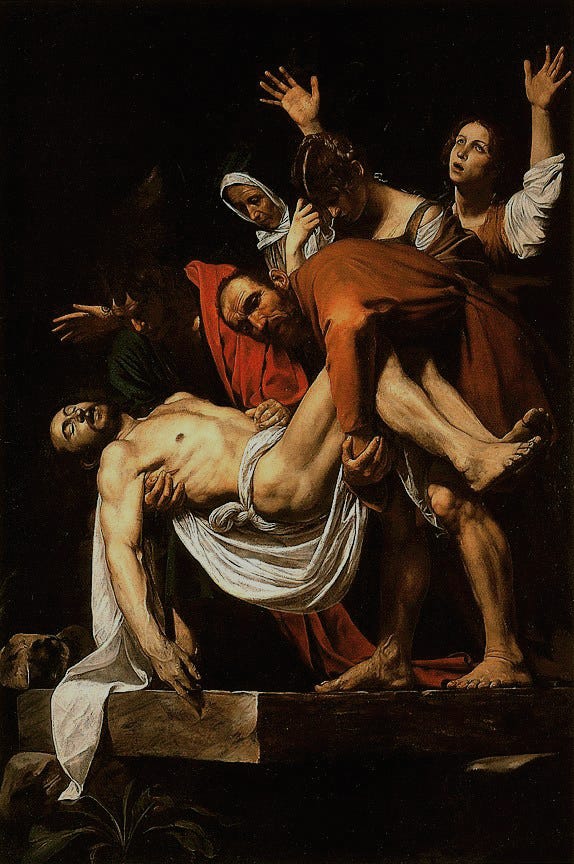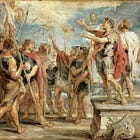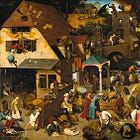Do we Need God? The Loss of God and the Decay of Society Under the False Gods of Sex, Status, Science and State. Street Theologian Responds to the Academy of Ideas
Which religion out of the top 5 should you pick?
Key questions in assessing 5 key religions:
1. One-ism or two-ism?
2. Who was Jesus?
3. Done versus doing?
Today
Crisis of meaning
Academy of Ideas
The false gods
The 4 S’s
Why is there anything at all?
Playing god to beat false gods
Christ as a way forward for humanity
Did you know we also publish on Medium.com?
https://streettheologian.medium.com/
The crisis of meaning
Many in the world today lack any sort of ultimate meaning in life. Most of us have experienced it. I sure have.
Disenchantment. Ultimate meaninglessness. Fragile foundations easily shattered by a job loss, a death in the family, an economic crisis, a rejection or a physical ailment. There’s no transcendent rest or peace irrespective or circumstances.
A life spent copying others. A life where the distractions of clicks, message notifications and likes cause us to spend entire years of our lives without looking into any deep questions.
A shallow cycle of living from one beer to the next, one promotion to the next, one orgasm to the next, one Netflix series to the next, one porn video to the next, one substance high to the next, one paycheck to the next, one holiday to the next, one relationship to the next, one new purchase to the next.
What is the underlying craving?
On and on it goes but the underlying craving always seems to be there. We just try and drown it with all the noise.
We’re like a child that permanently runs away from a doctor wanting to treat their wound, fearing it might cause pain only for the wound to gradually worsen and fill with puss.
Avoiding deep questions or key issues might help you today but it will kill you tomorrow. Ask yourself what gods you worship to drown out the underlying call in your life you need to respond to.
We all have an existential void. A need to feel loved, included or part of a meaningful cause. Where do you turn for this?
Academy of Ideas
The Academy of Ideas (AOI) produces some highly thought-provoking content.
I have spent hours devouring their content. AOI produces some great resources for understanding the nature of crowds, mass psychosis, perspective on suffering, psychology and ancient philosophy.
Their videos and podcasts are time-efficient to listen to and cover a wide variety of important topics. Ironically, AOI have produced videos which have also helped me become more consistent in my writing routine.
On God?
However, I do have some points to raise around some recent videos concerning God and religion for consideration.
The Academy of Ideas recently posted an interesting video titled Do we Need God? – The Loss of God and the Decay of Society.
They also posted a video titled, Why do Most Relationships Fail? – The Myth of the Magical Other.
In this video, they contended that the pursuit of a romantic partner has replaced the pursuit of God as a source of ultimate meaning in life.
AOI have also posted videos on Why the Lack of Religion Breeds Mental Illness and Is the Government the New God? The Religion of Totalitarianism.
The death of God
A key theme running through these videos is spelled out in Nietzsche and Nihilism - A Warning to the West.
According to Nietzsche, the death of God through reason and scientific progress, would give rise to other “shadow gods” which would make for worse gods than a transcendent Being. The death of God leads to the “virtues amok” situation outlined by GK Chesterton in Orthodoxy:
The modern world is full of the old Christian virtues gone mad. The virtues have gone mad because they have been isolated from each other and are wandering alone. Thus some scientists care for truth; and their truth is pitiless. Thus some humanitarians only care for pity; and their pity (I am sorry to say) is often untruthful.
After all, there’s no transcendent basis for meaning anymore with God dead. Therefore, as Nietzsche noted, we must forge this meaning for ourselves. Further, there is no objective standard against which to critique the path to meaning others have forged for themselves if no transcendent meaning exists.
Playing saviour
AOI highlights:
However, rather than positing a transcendental heaven and redemption in the afterlife, these post-Christian true world philosophies structured themselves around the possibility of redemption in this life, and the coming of a heaven on earth that is forged by the hands of men.
As David Foster Wallace noted in his famous commencement address, This is Water:
In the day-to-day trenches of adult life, there is actually no such thing as atheism. There is no such thing as not worshipping. Everybody worships. The only choice we get is what to worship. And the compelling reason for maybe choosing some sort of god or spiritual-type thing to worship–be it JC or Allah, be it YHWH or the Wiccan Mother Goddess, or the Four Noble Truths, or some inviolable set of ethical principles–is that pretty much anything else you worship will eat you alive.
Wallace then explores how worshipping money, sex and beauty, power and intellect will “eat you alive”.
Wallace warns:
But the insidious thing about these forms of worship is not that they’re evil or sinful, it’s that they’re unconscious. They are default settings.
They’re the kind of worship you just gradually slip into, day after day, getting more and more selective about what you see and how you measure value without ever being fully aware that that’s what you’re doing.
AOI have done well to note this problem.
The false gods
AOI note the numerous false gods. They quote James Hollis in The Eden Project: In Search of the Magical Other:
More people look for salvation through relationships than in houses of worship. One may even suggest that romantic love has replaced institutional religion as the greatest motive power and influence in our lives…the search for love has replaced the search for God.
In their video on the loss of God, they note:
Instead of worshiping the God that transcends the finite world and which grounds all of existence, many of us worship ideologies, our nation, politicians, celebrities, athletes, sports teams, consumer goods, drugs, or the sexual act, or we treat technology or science as new gods and believe that their advance will usher in a utopia and perhaps even grant us immortality.
They quote George Steiner’s Massey Lectures:
The political and philosophic history of the West during the past 150 years can be understood as a series of attempts – more or less conscious, more or less systematic, more or less violent – to fill the central emptiness left by the erosion of theology
The 4 S’s
We can summarise some of the key gods in today’s society with the 4 S’s.
Sex- obsession with the sexual act whether through casual sex acts of various kinds or through porn or masturbation or centrering one’s life around the pursuit of a magical other who will fulfil not only sexual but emotional and existential needs.
Science- the view that science has replaced religion as the ultimate source of meaning and will progress society to a utopia through technological evolution.
State- the view that the ultimate moral questions are answered by the State or affiliated key societal institutions and that the State can usher in a utopia that solves fundamental human problems.
Status- living for the approval and recognition of others whether through blind social conformity and adopting a herd mentality, slavish attachments to the corporate ladder, accumulation of riches and flashy possessions or paying for the same experiences as everyone else to simply feel included and recognised.
No transcendent basis in life
None of the 4 S’s offer a transcendent basis in life.
For example, on what basis can there be moral progress if no objective moral values exist?
Many fail to realise science itself needs a transcendent basis in something else. In science, we assume the immaterial laws of logic and mathematics, the rational intelligibility of the universe and the uniformity principle that tomorrow will be like today.
Why science needs the immaterial
On what basis can we assume all this if all that exists is the material world and we are mere bags of meat fizzing away to unguided chemical reactions? After all nothing immaterial exists. There’s no reason why an immaterial, universal, transcendent truth should be binding on someone in Botswana as well as Brazil.
AOI seemed to fail to pick up on this in their video on Nietzsche’s warning the West. In a way, science itself needs to presuppose the immaterial to be functional. This is the irony.
People claim science does away with an immaterial, transcendent being like God while assuming immaterial, universal and transcendent laws of logic and mathematics in practising science.
To even analyse the material world, we need to take something from a different plane into consideration.
God is a more plausible basis for this immaterial, transcendent order built into the universe than a mere disorderly chemical accident.
Why is there anything at all?
AOI astutely point out that if the universe having a beginning signified the beginning of time, space and matter as we know it, the Cause of the universe must be on an altogether different plane.
AOI reference psychiatrist Iain McGilchrist’s explanation in The Matter With Things, “The answer to this question is of an altogether different order, and must lie on a plane different from, and deeper than, everything else. The question cannot be answered in terms of a physical entity or process, because that already presupposes what we are questioning – why there are physical entities and processes. The proper object of this question is that which underwrites, timelessly and eternally, whatever is: in other words, the ground of Being.”
William Lane Craig’s version of the Kalam Cosmological argument is used to show this cause is “a personal Creator of the universe.. who is uncaused, beginningless, changeless, immaterial, timeless, spaceless, and unimaginably powerful.”
Why a personal cause?
As Craig notes elsewhere, if the cause is timeless or eternal, then the effect would be produced ad infinitum, again and again, without end.
Unless of course, the cause is personal, in which case it can be reasonable to see the effect only once which is what we see with our universe.
Moreover, given we are persons with intentions, a purpose, and a will it would make more sense for us to have a personal, rather than an impersonal cause.
AOI may also wish to look into Liebniz’ Contingency argument for God’s existence- why is there something rather than nothing? As Craig stipulates:
1. Anything that exists has an explanation of its existence (either in the necessity of its own nature or in an external cause).
2. If the universe has an explanation of its existence, that explanation is God.
3. The universe exists.
4. Therefore, the universe has an explanation of its existence. (from 1, 3)
5. Therefore, the explanation of the existence of the universe is God. (from 2, 4)
Playing god to beat false gods?
AOI astutely note the fact anything exists at all points to God and that society largely follows false gods. Where I would substantially disagree with AOI is their suggested eclectic approach to God.
AOI interestingly recommend not going outside the 5 key religions for a spiritual practice. They claim:
Most people are better served by turning to the traditions of an established religion, as these traditions, for thousands of years, have proved effective in cultivating the disposition of awe and wonder that facilitates the experience of God.
However, they then recommend in effect picking and choosing aspects of the key religions to meet one’s own need to head towards God.
Mix and match
The fact is if everyone comes up with their own eclectic approach to world religions they are in effect, creating a new one- their own micro-religion.
Orange juice mixed with cranberry juice is a totally different drink to orange juice on its own or orange juice mixed with olive oil.
Avocado mixed with salmon and poached eggs make a brunch. While avocado mixed with tuna and bread makes a totally different dish altogether. Avocado mixed with a 5-day-old banana peel and dry grass makes for trash.
Picking and choosing your own path is in effect making your own religion on your terms and making yourself a god.
That’s not how accessing truth works.
What AOI are in effect suggesting is you become your own god. You are determining your own religious path according to what you mix and match for you.
Whose terms?
If God is real and exists, why think you decide the terms on which you come to this Being? If you think you decide the terms, you’re not even thinking this Being is God.
For why should the Divine Being be accessed on our terms and not his own?
Don’t get me wrong, we can never fully comprehend God, nor is God’s revelation entirely limited to one book for even nature itself is a form of revelation from God (general revelation).
It is no surprise then that AOI quote Vivekananda, for Vivekananda himself thought the divine lies within him.
As Vivekananda wrote:
Each soul is potentially divine. The goal is to manifest this divinity by controlling nature, external and internal. Do this either by work, or worship, or psychic control, or philosophy - by one, or more, or all of these - and be free. This is the whole of religion. Doctrines, or dogmas, or rituals, or books, or temples, or forms, are but secondary details.
Do we have fingerprints of the divine in us? Sure, for God is our Source. However, that is vastly different from thinking we are divine in and of ourselves.
What Vivikenanda writes is incompatible with Islam, Christianity and Judaism, for we are fundamentally different from God’s essence in these religions.
While Vivekananda has written some great things and helped many men around the world in the area of managing lust and sexual purity, his view of self as possessing divinity would surely be offensive to a divine Being that exists on a different plane to Vivekananda.
The solution to false gods isn’t to become your own god and pick and choose religions to make your own unique mix. The question is what religious beliefs are fundamentally true?
Corruption in organised religion
The reason AOI give for not sticking to any particular religion is corruption in organised religion. As someone who personally spent many years away from key religious institutions due to early experiences of corruption in these institutions, I definitely can sympathise with this concern.
What ultimately drew me to Christianity was Christ himself, not Christians. Being a Christian is about choosing Christ.
Following Christians?
From this, it follows that we are called to love one another (John 13:34) and religious settings then become an opportunity to show Christ’s love rather than seek from Christians what only Christ can offer. Is there a place for learning from Christians? 100%! Should true Christians reflect Christ in some ways? Yes.
However, dismissing Christ because of professing Christians is like throwing out Einstein’s relativity because a physics student failed an exam. It does not follow.
Speaking of does not follow, AOI contend:
It does not follow, however, that one must become a strict adherent of any specific church, creed, or sect to make use of its rituals, practices, or forms of worship. For many organized religions have become corrupted by social trends and stunted in their development by a literalist interpretation of scripture, and so a full-scale adoption of any specific organized religion may impede our religious aspirations and thwart our ability to live a fulfilling life. Vivekananda, in recognizing the corruption of organized religion, recommended an eclectic approach to connecting with God. We should study the traditions of various religions, take part in their practices, and adopt the aspects of these religions that help move us in the direction of God,
Yet, this is problematic on a few fronts.
We are all corrupted ourselves and shouldn’t look solely to our corrupted selves to determine the terms on which we connect with God.
Organised religion may be corrupted but if the ultimate Source of certain sacred texts or practices is divine, we should go to the Source first and foremost rather than the institution. For example, if Jesus is divine and rose from the dead for the forgiveness of sins, the fact churches are corrupt does not mean you should disregard Jesus as the pillar of your life and not seek to show Christ’s love to others Christians at a church. It does not follow.
Literalistic interpretations of Scripture
AOI purports, “many organized religions have become corrupted by social trends and stunted in their development by a literalist interpretation of scripture.”
Is a literalistic interpretation of Scripture a reason to abandon religion? AOI are again dictating the terms on which texts which are supposedly from God should be read.
Scriptural texts should be read in the context of the type of literature they are in the manner than was intended for the original audience. Not as we would read the text ourselves.
The Bible, for example, contains various forms of literature- ancient historical biographies, poetry, apocalyptic literature, letters, songs and so forth.
We have contended in the below that the key events concerning Jesus’ death and resurrection need to be considered historical.
Yet, even amongst Christians, there are a variety of views on how the early chapters of Genesis should be interpreted.
Old Testament scholars such as Michael Heiser and John Walton, contend that the first few chapters of Genesis should be viewed as ancient Near Eastern creation stories of God assigning functions and bringing order over chaos, rather than as strict modern scientific accounts.
Other Christians prefer to try and treat Genesis 1 more like a science textbook.
Different views on a book like Genesis are not a good reason to stop one from becoming a Christian. What unites Christians is Christ’s divinity, death and resurrection, not a fixed view of creation.
Not mere mythos
AOI refer to Christ’s death in a video on the idea of how myths teach us important things. However, AOI make no effort to examine the historical context of the texts concerning Jesus or how early Christians treated them.
AOI are in effect redefining Christianity. If Christianity is from God, then AOI are in effect trying to play God.
For more on this topic I suggest AOI review the following:
A sender or receiver issue- 5 key religions
AOI make a valid point in emphasising the 5 key religions of Islam, Christianity, Judaism, Hinduism and Buddhism should be a logical starting point for a spiritual journey. However, rather than suggesting an eclectic approach where we each make our own micro-religions and define the terms on which God is approached, I suggest we ask the following three questions to determine which religion we should follow.
After all, issues in organised religion are more likely to be a receiver issue (fallen humans) than a sender issue. If there is one religion where God sends himself to humanity then we should assess that first before we try and play God and pick and choose religions on our own terms.
1. One-ism or two-ism?
The 5 key religions can broadly be split into one-ism and two-ism.
Under one-ism, all is one and shares the same nature. Under Hinduism we are all part of Brahman- everything is of the same essential nature. Brahman doesn’t create the world as such, Brahman is everything in the world. All of existence across space and time is the same.
It is perhaps no wonder then that Vivikenanda claimed to have divinity within.
Buddhism can also fall into the one-ism category, yet under Buddhism, as Keith Ward notes in the Big Questions in Science and Religion, a view closer to none-ism is perhaps more suitable. All that is is illusory. Even the self is an illusion.
Note, the view of one-ism is completely incompatible with the view of God AOI push, as AOI speak of God as being on a different plane of existence, the reason why something rather than nothing exists.
For God to be on a different plane of existence, we need two-ism.
That is where Islam, Christianity and Judaism come in.
In these three key monotheistic religions, there is a fundamental Creator and creation distinction. God has a different essential nature to his creation. As AOI note in quoting McGilchrist, God “must lie on a plane different from, and deeper than, everything else”.
2. Who was Jesus
Given we have established two-ism is most consistent with the view of God AOI present, we come to what distinguishes Islam, Judaism and Christianity- the person of Jesus.
In Christianity, Jesus is a Jew who is the divine Messiah fulfilling the Hebrew Scriptures, crucified, and risen Lord and Saviour. Jesus is the only Way to God.
In Judaism, Jesus is not the Messiah prophesied in the Old Testament.
In Islam, Jesus is a prophet, the Messiah (Surah 4:171) but was not crucified on the cross (4:157), nor is Jesus God’s Son or divine (eg. 4:171).
These differences go far beyond corruption in organised religion, the picture of God himself is vastly different across these 5 religions. To minimise these differences and pick and choose what we want from each of the 5 without examining which religion portrays the most historical view of Jesus, is to start to play God ourselves.
3. Doing versus done
AOI seem to define religion in such a way that excludes a fundamental tenet of Christianity:
The rituals of religions, be it meditation, prayer, time spent in solitude or absorbed in beauty, reading sacred texts, attending holy places, participating in religious ceremonies, or reciting chants, hymns, or mantras, are the devices that help bring us into harmony with God. At its most effective, therefore, religion is an active pursuit and it consists of more than the mere acceptance of dogmas or the shallow professions of faith.
What AOI seem to miss is that in Christianity, God does what we could not do ourselves. Rather than us moving in the direction of God, God first moves in the direction of us. Loving us before we loved him (Rom. 5:8). God is the One who makes harmony with him possible through Jesus’ death on the cross.
Salvation is a gift of grace in Christ Jesus. We ourselves are all fallen and corrupt. Through Jesus, God the Father sees Christ’s perfection instead of our sin.
The most important thing that needed to happen has been DONE through Christ’s death and resurrection.
The “doing” in Christianity then is an act of genuine gratitude and love to the one who saved us. It is not as in other religions a “doing” in order to be blameless or to become enlightened or for God to be more likely to show you mercy.
You can’t work your way to God
You can’t work your way to God. Period. God is perfect and on a different plane of existence. At the cross of Jesus, the divine and human planes intersect and the most important work for you is DONE.
Does this mean we don’t take responsibility for our own failings? Absolutely not for that is to cheapen the grace of Christ.
This is fundamentally different from how AOI present religion.
Jesus himself was opposed by those who thrived in the corrupt environment of organised religion. Jesus was isolated from the crowd.
As one of AOI’s favourite philosophers, Soren Kierkegaard exclaimed in Provocations:
Christ was crucified because he would have nothing to do with the crowd (even though he addressed himself to all). He did not want to form a party, an interest group, a mass movement, but wanted to be what he was, the truth, which is related to the single individual.
Christ as a way forward for humanity
AOI in referencing Jung, refer to religion as a mental pharmacy that offers psychotherapeutic benefits. AOI suggest a religious revival may be needed to save a depraved society from false gods.
The events concerning Jesus are rooted in history. They aren’t mere mythos.
Yet, the way of Christ poses a way forward for humanity. Christ’s sacrifice for us leaves us with a sense of awe and wonder. We are fallen, corrupt and broken. Yet, the Perfect experienced pain for us.
Christ paves a way to God we could not pave ourselves. In the love Christ shows us who wronged God, we are spurred on to forgive and show love to those who wrong us.
Innocent, yet isolated. Faultless, yet flogged. Loving, yet laughed at. Compassionate, yet condemned. Benevolent, yet betrayed. Sweet, yet spat on. Kind, yet killed. Holy, yet hated. Friendly, yet forsaken. Conciliatory, yet crucified.
Further still, he suffered out of love for us.
He offers a new identity. A new life. A satisfying, enriching, and transcendent love.
Conclusion
I would like to thank AOI for their incredible work and the good they are doing for millions around the world in challenging their audience to think outside the box.
To AOI and all their followers who have already been asked why there is something rather than nothing, I would ask three more questions:
Are you a one-ist or a two-ist?
Who was Jesus?
Has the most important work for you been done or still needs doing?
If AOI are correct and a spiritual revival is what is needed to save society, then I encourage you to get onto exploring these questions as soon as possible.
For as AOI themselves highlighted in the Psychological Benefits of Contemplating Death, we must remember that we are mortal, life could end at any moment and reflecting on our own mortality can give us perspective. Don’t edge one day closer to your death without first thinking of the three key questions.
All the best on your journey!
Street Theologian
Article archives spanning back to 2020:
https://streettheologian.medium.com/
Twitter updates? https://twitter.com/StreetTheologn





